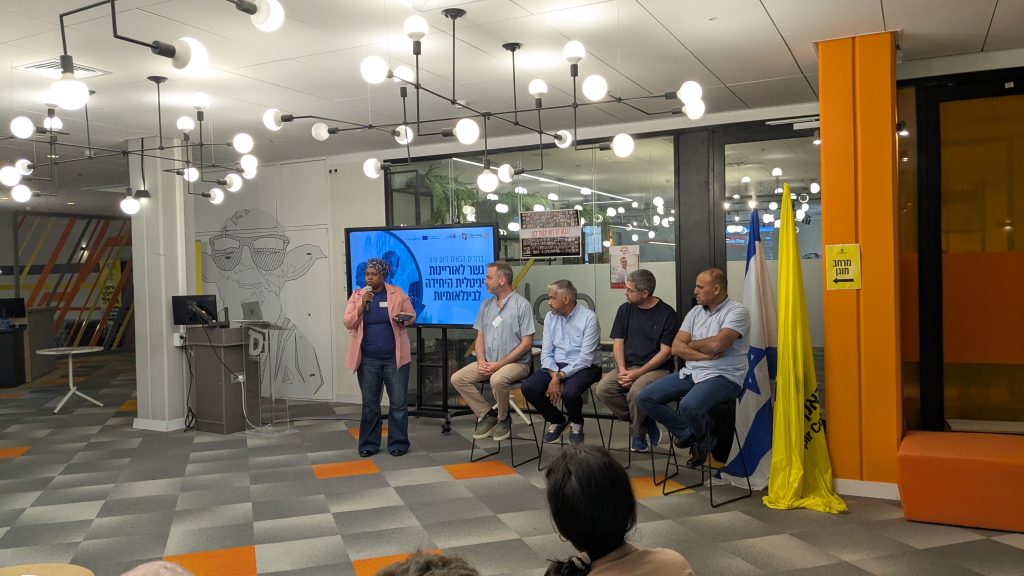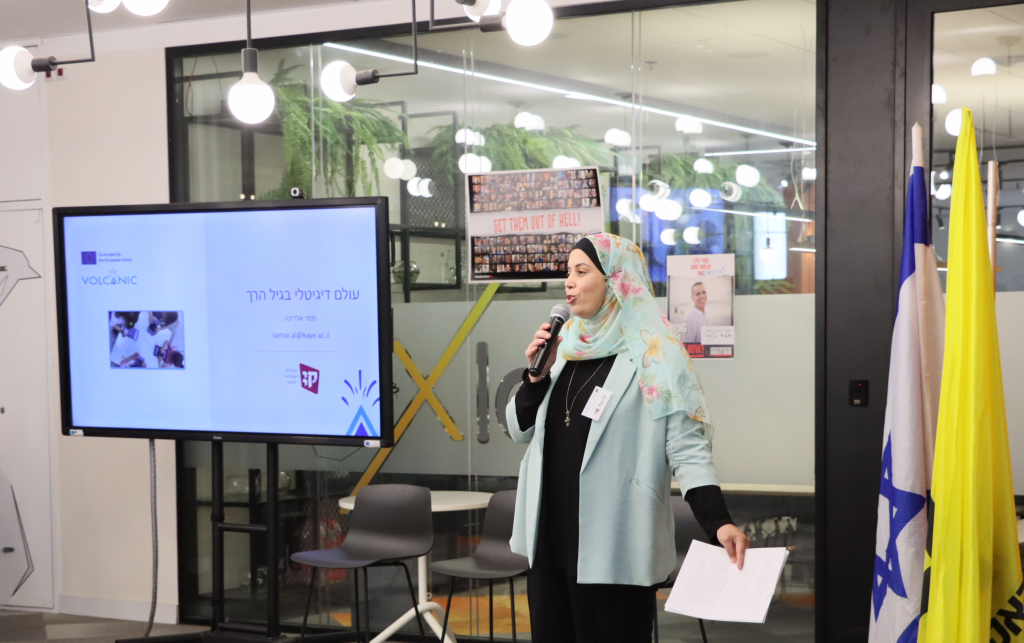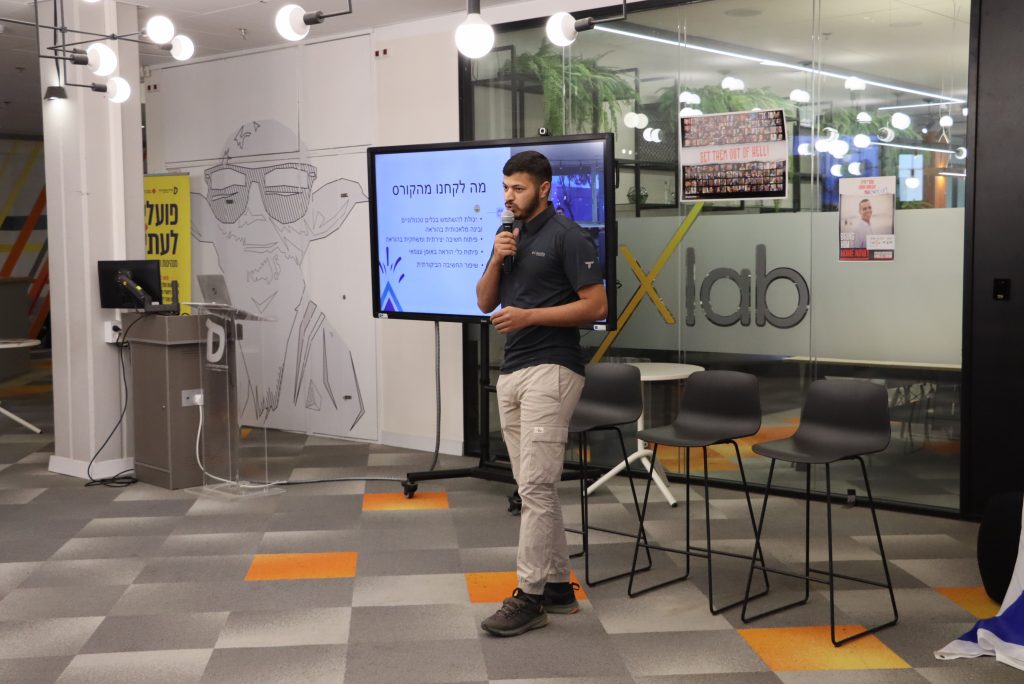As part of its mission to share insights and expand collaboration, the VOLCANIC project hosted a seminar marking two years of activity. The event, titled “A Bridge to Digital Literacy: Innovation and Entrepreneurship in the Bedouin Sector,” took place on Tuesday, May 13, 2025, at the cutting-edge XLab facility at Sapir Academic College, Israel.
Approximately 70 participants attended, including academic leaders, students, local government officials, teachers, and entrepreneurs, all united by a shared interest in advancing digital literacy and innovation in the Bedouin community.
The seminar opened with an overview of the VOLCANIC project, its goals, and its operations in both Israel and Morocco. This was followed by a thought-provoking expert panel on “Digital Gaps in Israel: Challenges and Opportunities in the Bedouin Sector,” featuring:
- Dr. Yonatan Mendel, researcher and community manager at MOFET
- Amer Adbargha, head of Arab Student Advancement
- Dr. Younes Elwashela, director of Neve Midbar Pedagogical Center
- Eitan Hess, strategic lead at Bnei Shimon Regional Council
Panelists discussed structural and cultural digital disparities within the Bedouin population. Despite these challenges, they noted high motivation among teachers and broad participation in professional training. Local councils were identified as key drivers of social change, and academic institutions as gateways to opportunity—though sustained support and cultural bridging remain essential. Hebrew language proficiency emerged as a significant barrier to academic success.
Conditions in Bedouin and Arab schools were described as especially dire, with poor infrastructure and limited access to technology. To address these gaps, panelists emphasized the need for cross-sector collaboration, especially between academic institutions and teacher training centers.
The second part of the seminar highlighted innovative courses developed by the VOLCANIC project. These programs promote digital literacy, entrepreneurship, and technological creativity within the Bedouin sector. Examples included:
- A digital toolkit for teachers
- AI-based educational aids
- Early childhood digital learning and game design
- STEM project-based learning for science teachers
- Product development and entrepreneurship
- Mobile video production for civic expression
- AI for marketing applications
Participants then engaged in informal networking and heard firsthand from students involved in the program. Their testimonials underscored the impact of the courses on their professional and personal growth.
The seminar fostered meaningful dialogue and connection, laying the groundwork for future collaboration. By bridging academia and local needs, the event demonstrated a clear path forward for technological advancement in the Bedouin community.




